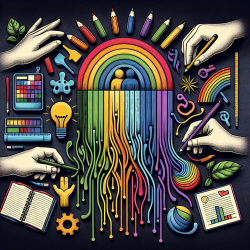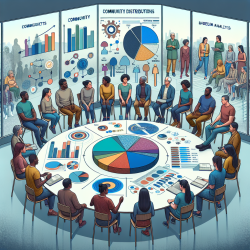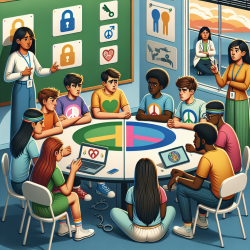As Special Education Directors, our commitment to providing the best possible support to our students requires a continuous search for effective tools and methods. One such tool that has garnered attention in the field of cognitive retraining is the Captain's Log software, a comprehensive computerized program designed to improve various cognitive skills. Drawing from the insights of the research article "Captain's Log - The Complete Computerized Mental Gym," this post explores how practitioners can enhance their therapeutic skills by integrating the outcomes of this research into their practice or by delving deeper into further research.
The Captain's Log software is aimed at improving attention, concentration, memory, eye-hand coordination, visual scanning and tracking, fine-motor control, and inhibition, among other cognitive skills. This makes it a valuable resource not only for students with traumatic brain injuries but also for those with attention deficit disorders or other cognitive impairments. With five modules containing 33 separate programs, Captain's Log offers a broad range of activities tailored to different skill areas, providing a versatile tool for therapists and educators.
For practitioners looking to enhance their therapy skills, understanding and applying the principles behind Captain's Log can lead to more effective intervention strategies. Here are some ways to implement the insights from this research into practice:
- Personalized Therapy Plans: Given the software's diverse modules and programs, therapists can create highly personalized therapy plans that target specific cognitive skills based on the individual needs of each student. This customization is key to effective cognitive retraining.
- Progress Monitoring: Captain's Log offers detailed feedback on a student's performance, allowing therapists to monitor progress over time and adjust therapy plans as needed. This data-driven approach ensures that interventions remain focused and efficient.
- Engagement and Motivation: The gamified nature of the programs within Captain's Log can increase student engagement and motivation, an essential component of successful therapy. Practitioners can leverage this aspect to encourage consistent practice and effort from students.
- Research-Informed Practice: By familiarizing themselves with the research underlying Captain's Log, therapists can gain insights into effective cognitive retraining strategies and the theoretical foundations of the software's design. This knowledge can inform broader therapy practices beyond the use of the software itself.
- Professional Development: Exploring Captain's Log and its research background offers practitioners an opportunity for professional growth. By integrating technology-based cognitive retraining into their repertoire, therapists can enhance their skill set and stay at the forefront of educational therapy techniques.
Furthermore, encouraging further research into the efficacy and application of Captain's Log can contribute to the broader knowledge base of cognitive retraining. Practitioners can participate in or initiate studies to explore new uses of the software, investigate its impact on various populations, or compare its effectiveness with other therapeutic tools. Such research not only enriches the practitioner's understanding but also advances the field as a whole.
In conclusion, Captain's Log - The Complete Computerized Mental Gym presents a valuable resource for practitioners aiming to enhance their therapy skills. By leveraging the insights from the research article and exploring further research opportunities, therapists can improve their practice, contribute to the field, and most importantly, better support their students in achieving their cognitive potential. For those interested in exploring the original research in detail, please follow this link: Captain's Log - The Complete Computerized Mental Gym.










